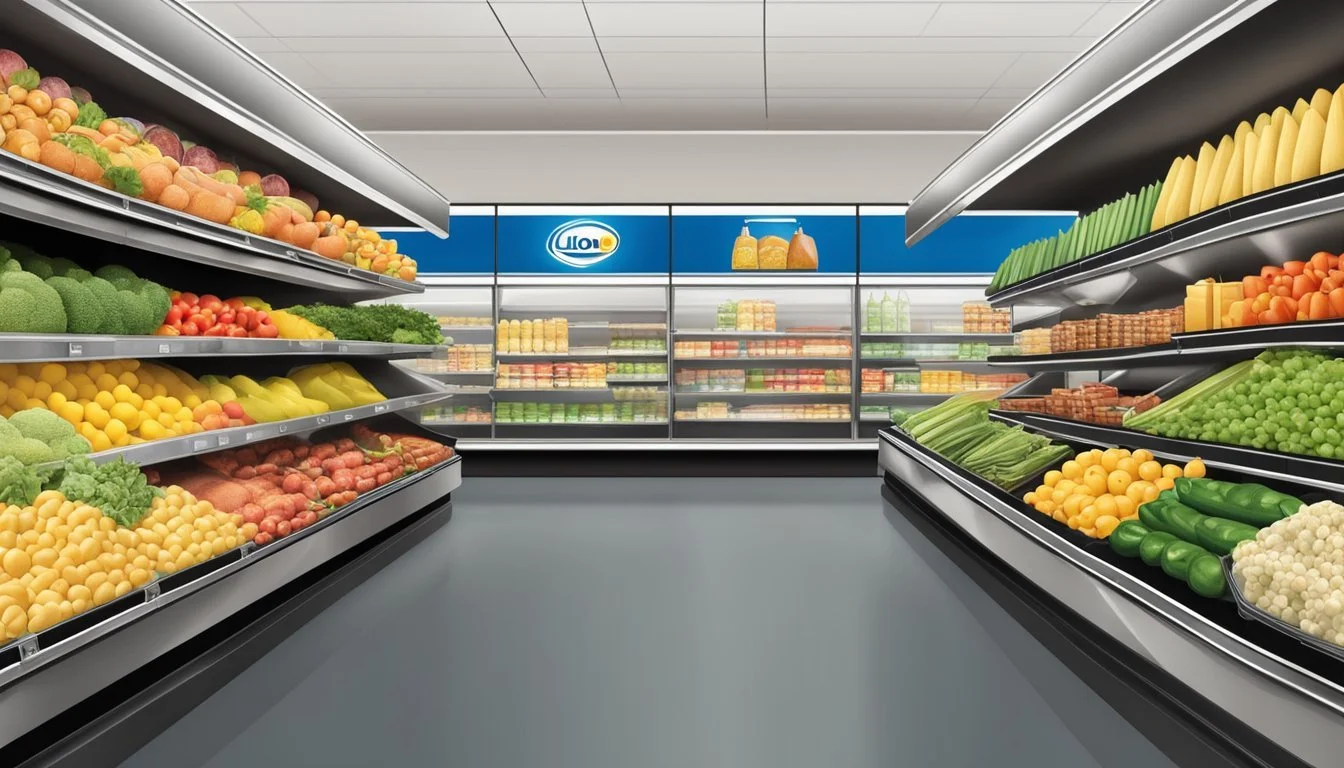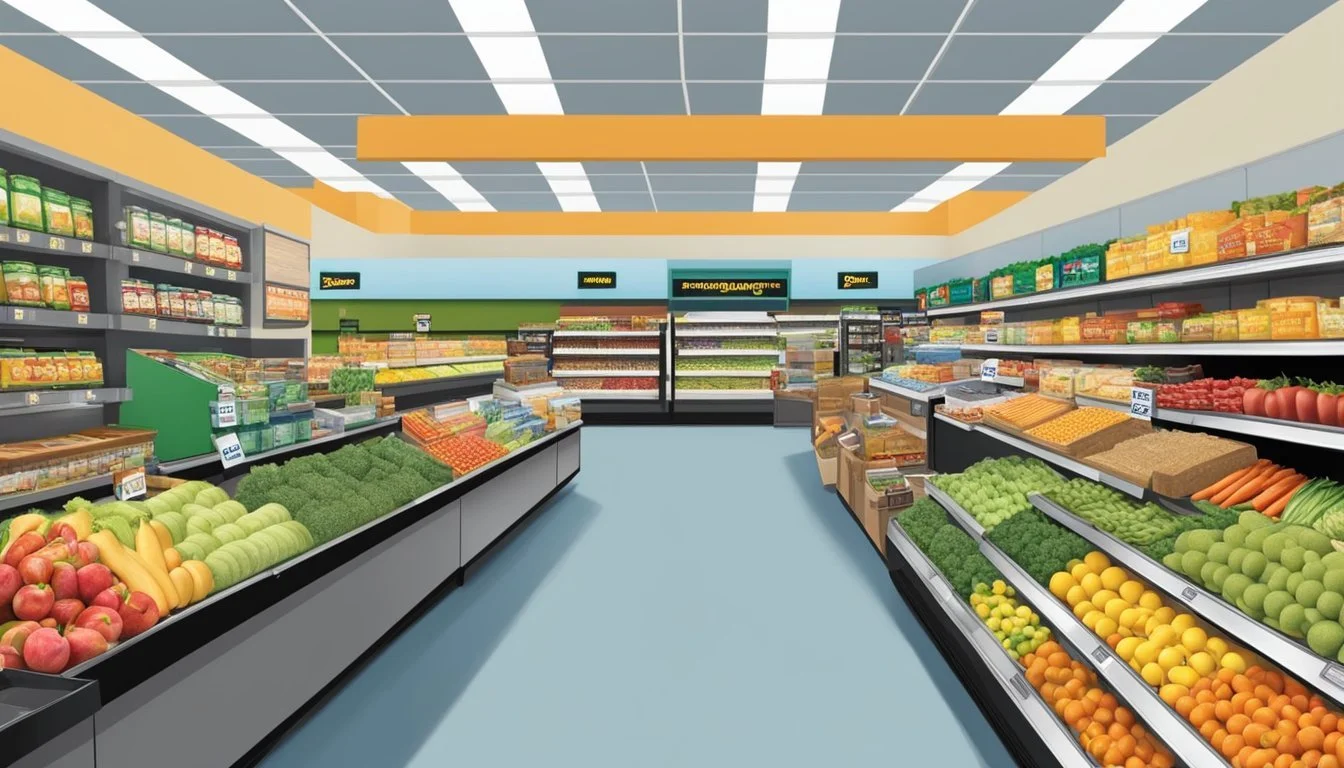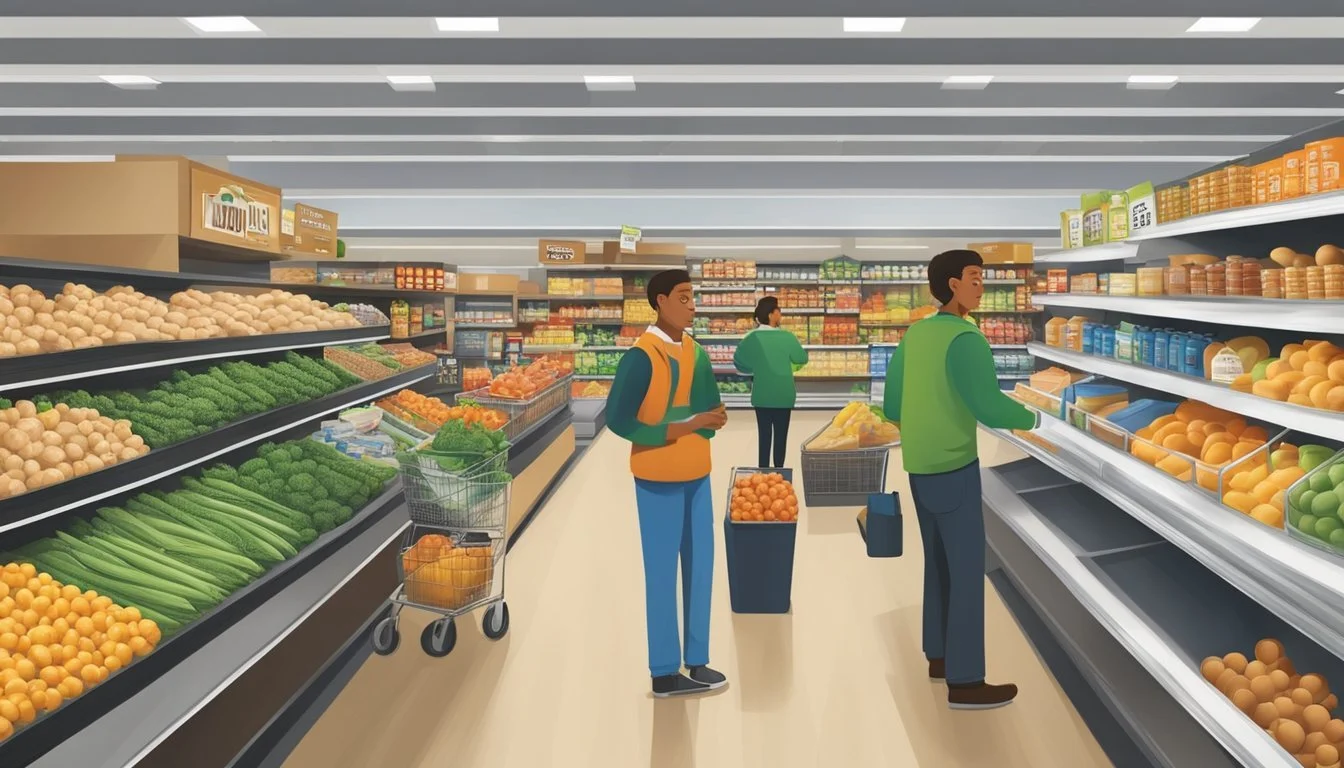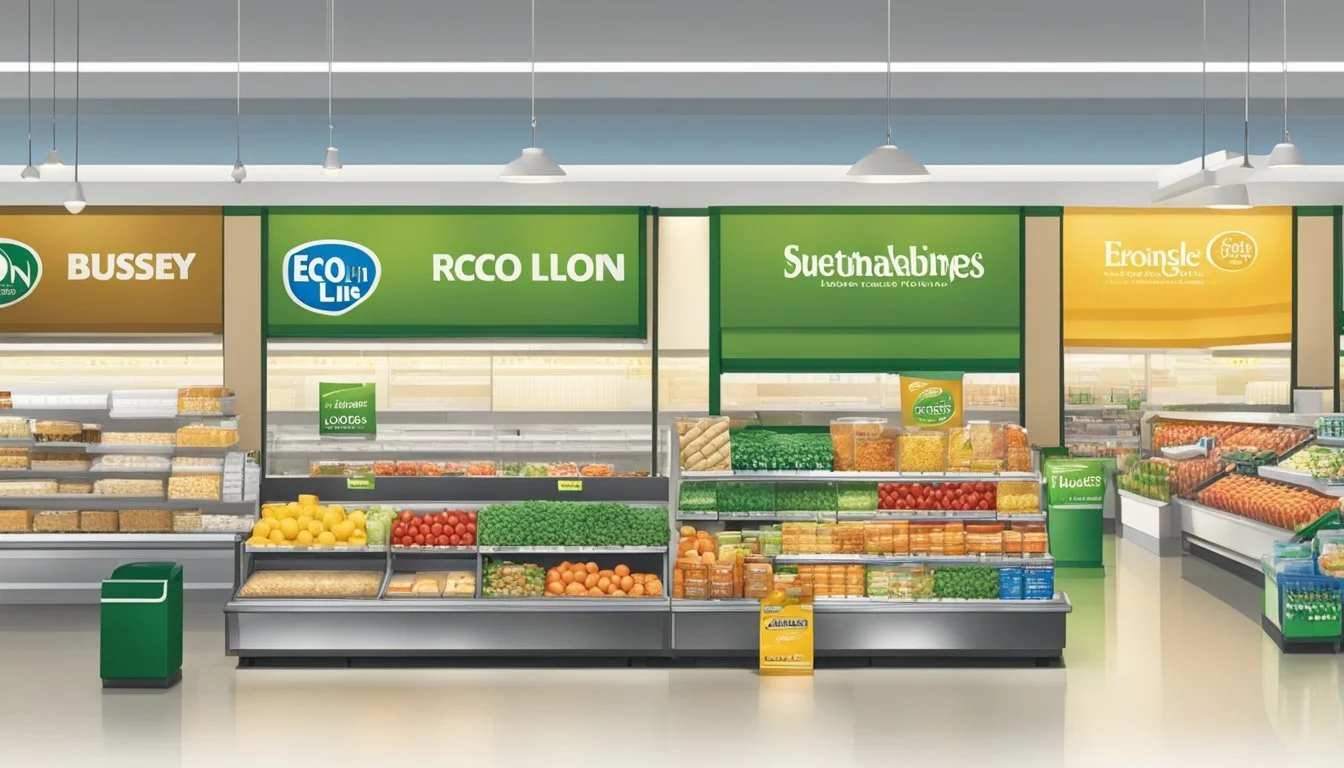Food Lion vs Ingles Markets
Comparing Prices, Selection, and Customer Experience
When it comes to grocery shopping in the southeastern United States, Food Lion and Ingles Markets are two popular choices. Both stores offer a range of products and services, but shoppers often wonder which one provides better value for their money.
Food Lion edges out Ingles Markets in terms of overall affordability, with prices typically 2-5% lower on average across common grocery items. This price difference can add up to significant savings for families over time, especially on staple products like bread, milk, and produce.
While Food Lion may have a slight advantage in pricing, Ingles Markets is known for its wider selection of specialty and local products. Ingles also tends to have larger store formats with more extensive deli and bakery departments. Ultimately, the choice between these two grocery chains may depend on individual preferences for price, product variety, and store atmosphere.
Company Overview
Food Lion and Ingles Markets are prominent grocery store chains operating in the eastern United States. Both companies have established themselves as regional powerhouses, serving millions of customers with diverse product offerings and competitive pricing strategies.
Food Lion's Background
Food Lion began as Food Town in 1957 in Salisbury, North Carolina. The company rebranded to Food Lion in 1983 and expanded rapidly across the East Coast. Today, it operates over 1,000 stores in 10 southeastern and mid-Atlantic states.
Food Lion is a subsidiary of Ahold Delhaize, a Dutch multinational retailer formed in 2016. The company focuses on providing fresh, quality products at low prices. It has implemented various initiatives to enhance customer experience, including a loyalty program and digital coupons.
Food Lion's commitment to community involvement is evident through its Food Lion Feeds program, which aims to fight hunger in local communities.
Ingles Markets' Background
Ingles Markets was founded in 1963 by Robert Ingle in Asheville, North Carolina. It has grown into a regional supermarket chain with approximately 200 stores across six southeastern states.
The company remains family-operated, with Robert Ingle II serving as CEO. Ingles Markets is known for its focus on fresh produce, in-store bakeries, and pharmacies. Many locations also feature fuel centers.
Ingles emphasizes community engagement and sources products from local suppliers when possible. The company has invested in modernizing its stores and expanding its product lines to meet changing consumer preferences.
Ingles Markets trades publicly on the NASDAQ under the ticker symbol IMKTA.
Store Footprint and Locations
Food Lion and Ingles Markets have distinct geographical presences, primarily serving consumers in the eastern United States. Both chains have established strong regional footholds, catering to local communities and families.
Food Lion Presence
Food Lion operates over 1,000 stores across 10 southeastern and mid-Atlantic states. Its primary markets include North Carolina, South Carolina, Virginia, and Georgia. The chain has a particularly dense concentration in North Carolina, where it was founded.
Food Lion stores are typically found in suburban and rural areas, often serving as anchor tenants in shopping centers. The company has focused on expanding its footprint through strategic acquisitions and new store openings in recent years.
Ingles Market Reach
Ingles Markets maintains a more focused regional presence, with approximately 200 stores across six southeastern states. The company's core markets are North Carolina, South Carolina, Georgia, Tennessee, Alabama, and Virginia.
Ingles has a strong presence in smaller towns and rural communities, often operating as the primary grocery option for area consumers. The chain has pursued a steady expansion strategy, prioritizing its existing markets rather than aggressive geographical growth.
Ingles stores are typically larger than Food Lion locations, featuring more extensive departments and product offerings. The company owns many of its store properties, which has allowed for greater control over its real estate portfolio.
Product Range and Quality
Food Lion and Ingles Markets offer distinct product ranges and quality levels, catering to different customer preferences. Each store has its strengths in specific departments and approaches to store brands.
Assortment of Goods
Food Lion provides a solid selection of everyday staples and essential groceries. Their produce section features standard fruits and vegetables, while the meat department offers common cuts at competitive prices. The dairy aisle stocks popular brands of milk, cheese, and eggs.
Ingles Markets boasts a more extensive variety, particularly in specialty items. Their produce department includes a wider range of organic options. The meat counter often features higher-grade cuts and a selection of pre-marinated options. Ingles typically carries a broader array of international foods and gourmet products.
Store Brand Comparison
Food Lion's store brand, "Food Lion," focuses on affordability across various product categories. Their generic staples like canned goods, pasta, and frozen vegetables offer budget-friendly options without sacrificing basic quality standards.
Ingles Markets' private label, "Laura Lynn," spans a wider range of products, including some premium options. Their store brand often competes more directly with national brands in terms of quality, particularly in categories like dairy and baked goods. Ingles' store brand products frequently incorporate more organic and natural ingredients.
Pricing and Affordability
Food Lion and Ingles Markets compete on price, with each offering unique ways for shoppers to save. Both chains employ strategies to attract budget-conscious customers and provide value.
Everyday Prices and Deals
Food Lion emphasizes its "Low Price Heritage" with competitive everyday pricing. The chain frequently runs weekly specials and promotions on popular items. Ingles Markets counters with its own set of regular discounts and weekly deals advertised in circulars.
Food Lion's "MVP" card provides additional savings on select items throughout the store. Ingles offers digital coupons through its Ingles Advantage Card program. Both chains use loss leaders - deeply discounted staples like milk or bread - to draw customers.
Discount Programs and Savings
Food Lion's "Shop & Earn" program allows customers to earn monthly credit toward future purchases. The chain also offers a senior discount day each month. Ingles provides senior discounts on select days and military discounts year-round.
Both stores accept manufacturer coupons and offer store-brand alternatives to save money. Food Lion's "My Essentials" and Ingles' "Laura Lynn" private labels typically cost less than national brands. Digital coupons are available through each store's mobile app, helping tech-savvy shoppers maximize savings.
Shopping Experience
Food Lion and Ingles Markets offer distinct shopping experiences for customers. The atmosphere, service quality, and store layouts play crucial roles in shaping customer satisfaction at both chains.
Customer Service
Food Lion emphasizes efficient service with a focus on quick checkouts. Cashiers are trained to process transactions swiftly, reducing wait times during peak hours. The store offers self-checkout options for customers who prefer a faster, more independent experience.
Ingles Markets takes pride in personalized service. Staff members are often knowledgeable about product locations and can provide recommendations. The chain invests in customer service training, aiming to create a friendly, welcoming atmosphere.
Both stores offer grocery delivery options, catering to customers who prefer shopping from home. Food Lion partners with Instacart, while Ingles Markets uses its own delivery service in select areas.
Store Layout and Convenience
Food Lion stores typically feature a straightforward layout. Aisles are clearly marked, making it easy for shoppers to find what they need quickly. The chain focuses on practical convenience, with essential items placed in easily accessible locations.
Ingles Markets often have larger store formats with wider aisles. They frequently include specialized departments like in-store bakeries and delis. Some locations feature pharmacies and fuel stations, offering a one-stop shopping experience.
Both chains prioritize cleanliness and organization. Food Lion tends to have a more compact feel, while Ingles Markets often provides a more spacious shopping environment.
Consumer Perception and Loyalty
Food Lion and Ingles Markets both strive to build strong connections with shoppers. Their brand reputations and customer satisfaction levels play key roles in attracting and retaining loyal customers.
Brand Reputation
Food Lion has worked to position itself as a value-focused neighborhood grocer. The chain emphasizes fresh produce and competitive prices. Its "Easy, Fresh and Affordable" slogan aims to resonate with budget-conscious shoppers.
Ingles Markets cultivates an image as a regional, family-owned business. The company highlights its local roots and community involvement. Ingles stores often feature in-house bakeries, delis, and pharmacies to provide a one-stop shopping experience.
Both chains face competition from larger national retailers. However, they maintain loyal followings in their core markets through targeted marketing and community engagement efforts.
Customer Satisfaction Surveys
Independent research firms regularly conduct surveys to gauge shopper sentiment toward grocery chains. These studies provide insights into areas like product quality, customer service, and overall shopping experience.
In recent surveys, Food Lion has shown improvement in customer satisfaction ratings. The chain's efforts to renovate stores and expand its private label offerings appear to be resonating with consumers.
Ingles Markets typically receives solid marks for its produce selection and prepared foods. The company's focus on locally-sourced products appeals to many shoppers in its operating region.
Both chains continue to invest in digital offerings and loyalty programs. These initiatives aim to boost customer engagement and compete with online grocery options.
Corporate Responsibility and Sustainability
Food Lion and Ingles Markets have made strides in sustainability and community engagement. Both grocery chains recognize their responsibility to reduce environmental impact and support local communities.
Environmental Impact
Food Lion has set ambitious sustainability goals for 2024 and beyond. The company aims to halve carbon emissions from its operations and reduce food waste by 50%. Additionally, Food Lion plans to cut supplier emissions by 15%.
95% of Food Lion's stores now use more sustainable lighting, with upgrades planned for remaining locations in 2024. These changes have resulted in significant energy savings since 2015.
Ingles Markets has also implemented energy-efficient practices in its stores. The company focuses on reducing waste and improving recycling efforts. Ingles offers reusable bags and encourages customers to bring their own containers for bulk items.
Community Engagement
Food Lion actively supports local food banks and hunger relief programs. The company donates millions of meals annually through its Food Lion Feeds initiative. This program aims to provide 1.5 billion meals to families in need by 2025.
Ingles Markets emphasizes community involvement through various charitable activities. The company sponsors local events and supports education programs in its operating areas. Ingles also partners with regional farmers to offer fresh, locally-sourced produce in its stores.
Both chains prioritize offering healthy and organic options to customers. They have expanded their store brand product lines to include more natural and organic choices, catering to health-conscious families.
Comparison Summary and Final Thoughts
Food Lion and Ingles Markets offer distinct shopping experiences for consumers. Both supermarket chains primarily serve the southeastern United States, catering to local preferences.
Food Lion emphasizes competitive pricing. Its stores typically feature a no-frills layout, focusing on everyday essentials at affordable rates. The chain's MVP rewards program provides additional savings opportunities for frequent shoppers.
Ingles Markets, in contrast, tends to offer a wider product selection. Many Ingles locations include expanded departments like bakeries, delis, and pharmacies. The company often stocks more local and regional products compared to Food Lion.
Price-conscious shoppers may find Food Lion more appealing. A Consumer Reports study ranked Food Lion as having prices 10% lower than average among surveyed grocery chains.
Those seeking a broader shopping experience might prefer Ingles. The chain's larger stores and diverse departments can provide a one-stop shopping solution for many customers.
Customer service quality and store cleanliness can vary by individual location for both chains. Shoppers are encouraged to visit their local stores to assess these factors firsthand.
Ultimately, the choice between Food Lion and Ingles Markets depends on individual priorities. Budget-focused consumers may lean towards Food Lion, while those valuing product variety might choose Ingles.







